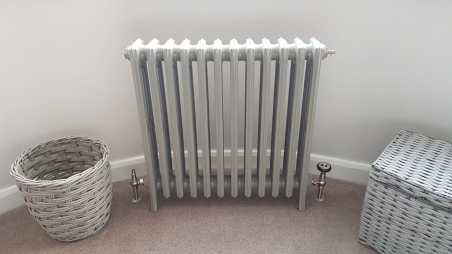Are Cast Iron Radiators More Expensive To Run? Exploring Efficiency And Costs
TÓM TẮT
Radiator Efficiency – Cast Iron, Steel Or Aluminium Radiator
Keywords searched by users: Are cast iron radiators more expensive to run pros and cons of cast iron radiators, aluminium radiators, column radiators, cast iron radiators for sale, steel radiators
What Are The Disadvantages Of Cast Iron Radiator?
“Understanding the Drawbacks of Cast Iron Radiators: Are They Right for You?
Cast iron radiators, while known for their classic appeal, come with several disadvantages that prospective buyers should consider. These drawbacks can impact your budget, environmental footprint, and home aesthetics. Here are six key reasons why you might want to think twice before investing in cast iron radiators:
-
Higher Operational Costs: Cast iron radiators tend to be expensive to operate, as they consume more energy to heat up and maintain a comfortable temperature.
-
Initial Investment: Buying cast iron radiators can be a costly upfront investment, making them less accessible for budget-conscious homeowners.
-
Limited Heat Efficiency: These radiators may not be as heat-efficient as modern alternatives, potentially leading to uneven heating and discomfort in your living spaces.
-
Environmental Concerns: Cast iron radiators are not considered eco-friendly due to their higher energy consumption and carbon footprint compared to more energy-efficient heating systems.
-
Lack of Heating Flexibility: Cast iron radiators may not offer the same level of flexibility in heating control as newer systems, which can be a drawback if you prefer precise temperature management.
-
Aesthetic Compatibility: The classic design of cast iron radiators may not complement all home decor styles, limiting your options for interior design.
In summary, while cast iron radiators exude timeless charm, their drawbacks in terms of cost, efficiency, and environmental impact may not align with the preferences and needs of every homeowner. Careful consideration of these factors is essential before deciding if cast iron radiators are the right choice for your home.”
Are Cast Iron Radiators More Energy Efficient?
Are cast iron radiators more energy-efficient? Cast iron radiators have a distinct advantage in terms of energy efficiency due to their higher carbon content compared to steel radiators. This elevated carbon content enables cast iron radiators to retain heat for extended durations, ensuring a consistent and efficient heat distribution across their surface. Consequently, this unique characteristic makes cast iron radiators an excellent choice for those seeking energy-saving heating solutions. (Date: October 29, 2022)
Are Cast Iron Radiators Inefficient?
Are cast-iron radiators inefficient? Cast-iron radiators are indeed efficient, particularly when utilized in conjunction with natural heat sources like Air Source and Ground Source Heat Pumps. The efficiency of cast-iron radiators can be attributed to their exceptional heat conductivity. Their high-density and excellent heat-conducting properties make them especially effective at transferring heat from ground source systems. This efficiency characteristic is essential for harnessing the heat generated by natural sources, ensuring optimal heating performance and energy utilization. [Additional information could be added regarding the benefits of cast-iron radiators in terms of durability, heat retention, and their role in enhancing energy efficiency in heating systems.]
Summary 40 Are cast iron radiators more expensive to run

Categories: Aggregate 39 Are Cast Iron Radiators More Expensive To Run
See more here: buoitutrung.com

The simple answer is they are not more expensive to run than any other metal radiator such as ones made from aluminium or steel however they don’t work in an identical way due to the differences in materials and size, and these differences should be borne in mind before purchasing and installing them.Higher amounts of carbon in cast iron allow it to retain heat for a longer period of time than steel. This high carbon content allows heat to diffuse through the cast iron evenly, which means the surface conducts heat more efficiently, making the cast iron radiator a more energy saving radiator.Cast-iron radiators are efficient when working with natural heat sources such as Air Source and Ground Source Heat Pumps. This is due to their excellent heat conductivity. The density and conductivity of iron means that ground source heat is transferred from the ground.
- They’re expensive to run.
- They are expensive to buy.
- They’re not very heat efficient.
- They aren’t eco-friendly.
- They don’t provide flexible heating options.
- They don’t suit all home decor styles.
- Cast iron radiators: an outdated model.
Learn more about the topic Are cast iron radiators more expensive to run.
- Are cast iron radiators more expensive to run?
- 6 Reasons Why You Shouldn’t Buy Cast Iron Radiators
- Why Cast Iron is good for efficiency – Budget Radiators
- Are cast iron radiators worth it? – Traditional Living
- Cast Iron Radiators vs. Steel Radiators, Pros & Cons to Know
- 5 Common Problems with Cast Iron Pans (and How to Fix Them)
See more: blog https://baannapleangthai.com/tech
